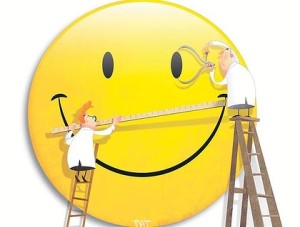With less than a month until Christmas, it is time to begin your holiday shopping! Christmas is my favorite holiday for many reasons. I love spending time with my family and listening to the holiday music and eating all of the delicious food but most of all I love seeing people’s faces when they open the presents I purchase for them. Now, I am aware that some people enjoy receiving gifts rather than giving them. However, I always thought this personal choice did not come with any additional benefits, I always assumed that whichever you enjoy; receiving or giving made you equally happy.
 There was a study done to determine whether giving or receiving resulted in greater benefits. A social psychologist at University of British Colombia in Vancouver, Canada surveyed 109 students on campus to find out if there was an advantage to how you spent your money. The participants were given an envelope with either a $5.00 bill or a $20.00 bill and they were told how to spend it. The students who were told to give the money to charity or to buy someone a gift were happier at the end of the day. This correlation was found in two additional studies as well.
There was a study done to determine whether giving or receiving resulted in greater benefits. A social psychologist at University of British Colombia in Vancouver, Canada surveyed 109 students on campus to find out if there was an advantage to how you spent your money. The participants were given an envelope with either a $5.00 bill or a $20.00 bill and they were told how to spend it. The students who were told to give the money to charity or to buy someone a gift were happier at the end of the day. This correlation was found in two additional studies as well.
My first instinct is to believe that this study shows accurate results because I personally get more joy out of buying things for other people than buying things for myself. However, when evaluating the results, it is clear that this study is not the most reliable. The results seem plausible but there needs to be more information to prove these findings. There are few reasons why this study is not accurate. First of all, this is an observational study. This means that third variables are not ruled out. There could be an additional factor that caused the social psychologist to find a correlation between spending money on others and happiness. The results can also be due to chance. That is why it is important to further your research on studies because there is a lot of factors to consider before accepting that the correlation is true. We can conclude that this study found a false positive result. Even if spending money on other people does not cause happiness, something in the result caused the correlation therefore something was found in the study.
The size of the study is another reason why the findings can be classified as unreliable. Only 109 students were observed in the study. This is not enough people to get an accurate result. Economist Andrew Oswald of the University of Warwick in the U.K. agrees that the study needs to test a larger group of people. The article states, “Still, Oswald notes that the work needs to be replicated in larger samples, closer to 1000 people, to be completely convincing” (The Secret to Happiness? Giving).
The correlation shown can also be because of reverse causation. It is possible that happy people are more likely to spend their money on other people. In the study mentioned above the participants were told whether to spend their money on themselves or someone else. However, in the other two studies that had matching correlations, people were not assigned how to spend their money. Instead, they surveyed how people felt before and after receiving work bonuses and they analyzed data from 632 people on income, spending and happiness. Both groups had the same result; that happiness correlated with the amount of money people spent on others. In 2/3 of the studies, reverse causality is a possibility for the correlation shown.
One of the biggest reasons why these studies are not accurate is because they do not explain how happiness was measured. Everyone has their own definition of happiness and it is very challenging to measure someone elses happiness. I am interested to know how happiness was measured within these studies. In my opinion, the experimenter would have to measure a person’s brain waves in order to prove the participants happiness and from the data shown, it does not seem like that was tested. According to Peak Achievement Training, “Research shows when we feel good feelings such as happiness and love, the brain produces brainwaves around 40 cycles per second.” This would be the most accurate way to measure a person’s happiness and to discover a truthful correlation between spending money and happiness.
In conclusion, these studies do not prove that spending money on others cause happiness. People might believe these results because for them they might get more satisfaction out of buying gifts for other people than for themselves. However, the study does not prove this assumption. In order to support this correlation, a controlled experimental study would have to be conducted and more participants would have to be tested.


This is an extremely interesting and holiday-appropriate (!) article. I found an experiment where scientists looked to find the same sort of giving mentality in their subjects. They found 20 straight couples in good relationships and hooked the girlfriend up to a machine that could measure her brain waves, while the boy was exposed to painful shocks. In this experiment, the girl’s ventral striatum (connected with rewards) had increased activity, showing that by providing support she got a reward out of it by touching her boyfriend’s arm. This reward seemed greater when she was touching her boyfriend and he was in pain, which strikes a connection between support-giving and self-reward. I agree that humans inherently can find satisfaction, and this study put this idea outside the stereotypical present-giving scenario.
http://www.sciencedaily.com/releases/2011/11/111109152213.htm